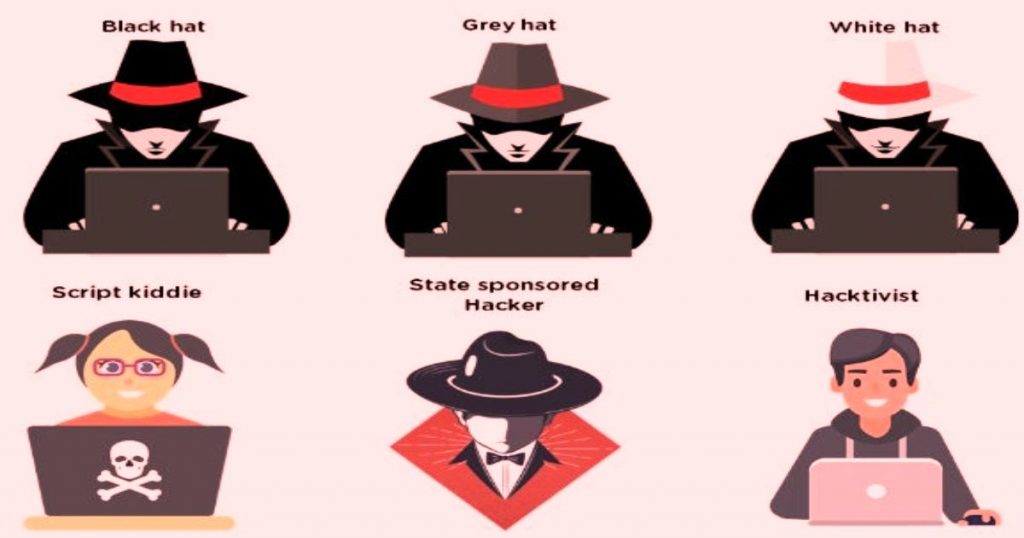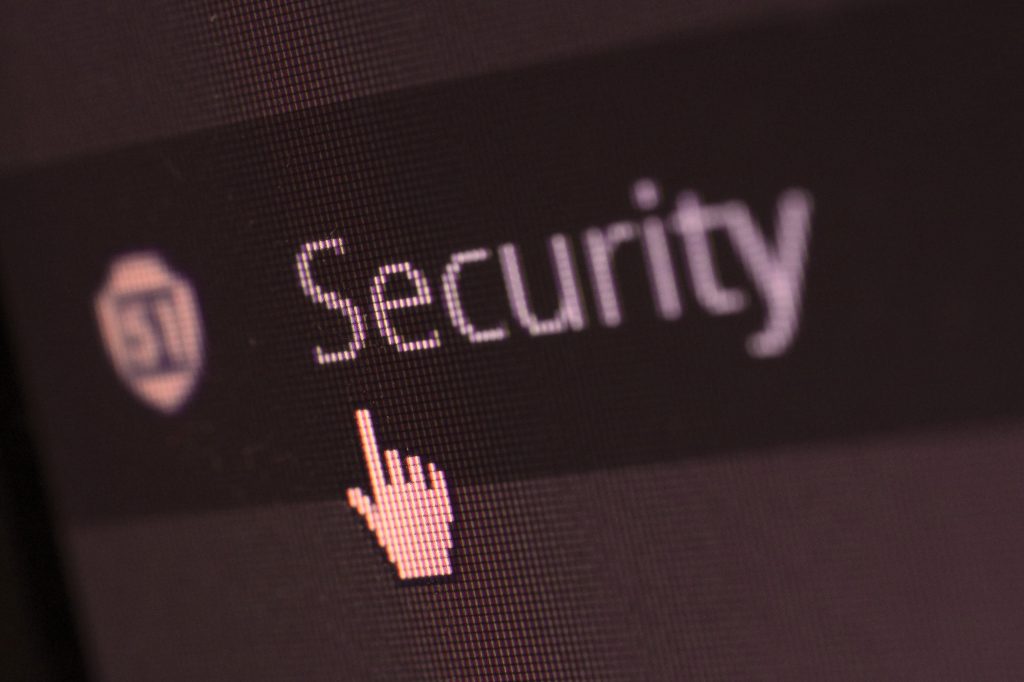What is Hacking? Hacking Prevention on Mac, Windows, Mobile
What is Hacking?
‘Hacking’ is mechanism of identifying flaws in computer, tablets, mobile phones or a network to exploit the security to gain access to personal or business data. For example, if someone is trying gain access to your computer by using password cracking algorithm, then this technique is considered as hacking and the person behind this activity is known as ‘Hacker’.
Hackers or cybercriminals attempt to take advantages of flaws or bugs in computer like software’s bug, pirated software and other weakness in computer or the network, and attempt to run suspicious codes in targeted machine with user’s permission.
Hacking is not only to gain access to target computers or network but also to commit fraudulent acts such as fraud, privacy invasion, stealing corporate/personal data, etc. In most cases, hacking is associated with illegal activity and data theft by cybercriminals or hackers.
In simple word, hacking is activity to misuse computers, mobile phones, tablets, and networks to cause damages to or corrupt Systems, collect personal or sensitive data about users, steal data and documents, or disrupt-related activity.
Hacking can be used for legal purposes. Law enforcement agencies sometimes use hacking mechanism in order to collect evidence on cybercriminals or other malicious actors. Likewise, covert world agencies can employ hacking techniques in the legal conduct to their work.
In most cases, hacking refers to cybercrime by cybercriminals. Some hackers are known as ‘Script Kiddies’ who are breaking into computers using programs/codes written by others. Actually, they have little knowledge about hacking and ways on how hacking work.
While some hackers are well-experienced in hacking and they designed & developer their own programs for hacking purposes. Self-designation of hobbyists as hackers is generally acknowledged and accepted by computer security hackers.
The person from the program subculture categorizes the computer intrusion associate usage incorrect, and emphasizes the difference between the two by calling security breakers or ‘Crackers’. They use malicious tricks users into installing malicious codes created by using powerful algorithm.
These suspicious codes can be included in malicious attachments or links presented on spammy emails, and tricks users into installing malware, and collecting their sensitive data. Once they gain access to targeted machine, they can make several unwanted changes in browser’s settings and/or System’s settings.

Hacking History
According to research, hacking term first appeared in 1970s and become more popular through next decade i.e., in 1980s, an article was published with the headline ‘The Hackers Papers’ and explained that the exploration of computer’s usage addictive nature.
Two years later, two movies were released including Tron and WarGames in which the lead characters set about hacking into computer Systems. These movies were not just movies as it introduced the concept of hacking to the world, and alerted the computers’ users about security risk that hacking acts played in movies can becomes true in real life so be alert.
As per our research, hacking term first appeared in 1960 at MIT. They were extremity skilled hackers practiced programming in FORTRAN and other older languages. Some may ignorantly dub them ‘nerds’ or ‘geeks’ but these hackers were the most intelligent who happened to be pioneers and forefathers of talented individuals that are today the true hackers.
They have an almost anomalous ability to absorb, retrain, and exert vast amounts of knowledge with regard to intricate details. In 1998, two Chinese hackers, Hao Jinglong and Hao Jingwen (twin brothers) are sentenced to death by the court in China for breaking into a bank’s computer network and stealing 720,000 Yuan.
In the same year, Ehud Tenebaum, a profilic hacker aka ‘The Analyzer’ is arrested in Israel for hacking into many high profiles computer networks in US. These data about hacking shows that hijacking activity by cybercriminals is being used for long times, and their ways of hacking have changed decade-by-decade.
Now, the highly skilled hackers actually know the several tactics gain access to targeted computers or the network. They use malicious tricks like phishing/scam emails to tricks users into providing their personal information, and also attempts to tricks you into opening attachments presented in such emails that are designed to run malicious codes.

Types of Hacking and Hackers
What are the types of hacking?
Social engineering & phishing: One of the mostly used techniques used by hackers to spread malware to collect personal information is the social engineering & phishing. Many of social engineering bait come in the form of phishing emails.
These phishing emails include some false-positive messages along with some suspicious hyperlinks and/or attachments. Hackers attempt to tricks users into opening such links or attachments that are designed to inject malware or viruses into computer. Once they gain access to targeted System, they can start running malicious codes in computer to control your data.
Malware-injecting devices: Cybercriminals can also attempt to inject malware or viruses in targeted machine by using some hardware devices. Malware or viruses can be hidden inside the hardware device like USB sticks or USB devices, which can trigger infections into users’ computer when they connect infected device to their computer.
Hackers are using cords now to inject malware or viruses. For example, malware can included in USB cables and mouse cords so it is crucial to always think before plugging anything into work device into a personal device with access to work-related data.
Missing security patches: Attackers take advantages of bugs or flaws associated with software installed in computer, and exploit the bugs to spread harmful malware in device. However, updating software can fix any bugs or flaws associated with such software and improve performances as well.
In case if any software is missing security patches, then it is responsibility of users to update the software to get latest security patch. Also, if security tools installed in computer is outdated, then requires frequent updates to protect against new threats.
Cracking passwords: Cracking password is another one of mostly used mechanism by hackers to gain access to users’ account by collecting login ID, password credentials. Here, ‘Keylogging’ term refers to record keystrokes, saving username & password as users enter them.
Cracking password activity can be in the form of spyware or malware that track the users activity until a hacker has what they need to strike. Some highly dangerous password cracking programs are designed to run letter and character combinations, guessing passwords in a matter of minutes, even seconds. For example, a five-character password could have about 100 different combinations, and savvy password cracker could run through them all in seconds.
DDoS (Distributed Denial-Of-Services): This is another hacking techniques designed to take down a website, so that users can’t access it or deliver their service. DDoS attacks work by inundating the target’s server with large influxes of traffic. This attack can trigger server crashes and website down issues.

What are the types of hackers?
Hackers are classified according to their intent. Let’s take a look at list.
Ethical hackers or White hackers: Hacking can be used for legal purposes as mentioned in this post. The Ethical hackers or white hackers attempt to gain access to computers, mobile phones, tablets, or networks to fix the identified weaknesses. They may perform penetration testing and bug assessments.
Crackers or Black hackers: Black hackers are cybercriminals who attempt to gain access to computer System or network without users’ knowledge. They attempt to steal corporate data, violate privacy rights, transfers funs from bank accounts, etc.
Grey hat hackers: They are in between white and black hat hackers. They attempts to gain access to computer System without authority with a view to identify weaknesses and reveal them to the computers’ owner.
Script Kiddies: They use hacking tool created by others to gain access to computers or network. They can be called as beginner in hacking world.
Hacktivist: They use hacking to send social, religious, and political, etc messages and it is done by hacking websites and leaving the message on hacked websites.
Phreaker: Cybercriminals who are expert in identifying and exploiting weaknesses in telephones instead of computers.

Hacking on Mobile Phones
Hackers can use malicious tricks to compromise the mobile phones or the network due to various vulnerabilities. They can infect Android. iOS, Windows, Blackberry or other Operating System based mobile phones by using several hacking tactics.
For example, they can send phishing/spam messages to users and tricks to clicking on links or attachments presented on it. This way, users install malware or viruses in their mobile phones.
There are many types of Mobile phone hacking methods including hacking into a live conversation or into someone’s voicemail, and to hacking into data stored on one’s Smartphone. As users increasingly store sensitive data on their mobile devices, the opportunity to exploit privacy weaknesses become more tempting to unscrupulous ferneries, exes or the occasional strangers.

What are the types of hacking on Mobile phone?
Hacking using Phone Number: SS7 (Signaling System No. 7) is called as Command Channel Signaling System 7 (CCSS7). It is set of protocols allowing phone networks to enhance the information needed for passing calls and text messages between each other, and to ensure correct billing.
SS7 offers users on one network to roam on another, such as when travelling in a foreign country. However, cybercriminals or hackers can take advantages of SS7 System to hack phones. Once they gain access to SS7 System, then they can easily record calls, forwarding calls, reading messages, finding locations of particular devices. Due to level of difficulty, it is unlikely that the average person would be able to hack mobile phone in this manner.
SIM card hacking: In 2019, Twitter’s CEO had his SIM card hacked by SIM card swapping using the phishing method. This method is performance when hackers contacts your phone provider, pretends to be you, and then asks for SIM card replacement. Once the SIM card provider sends the new SIM card to hacker, the old SIM card will be deactivated, and then you phone number will be stolen.

This way, hackers or cybercriminals can take advantages of SIM card swapping method to record your phone calls, messages, etc. ‘Simjacker’ is one of the ways of hacking mobile phones using SIM card. This way of hacking is more complex than phishing as it targets a SIM card by sending a signal to target device.
Bluetooth hacking: Hackers can use some special applications to search for vulnerable mobile phones with an operating Bluetooth connection. These types of hacking are possible only when a hacker is in range of your phone according to Bluetooth connection range. Once attackers gain access to your mobile phones via Bluetooth connection, they have access to all of the information available and internet connection to access the web.
Hacking on Macs
As mentioned, hacking mechanism is used by cybercriminals to gain access to computers, mobile phones, tablets, or networks. Hackers attempt to infect Microsoft Windows Operating System based devise as well as other OS based computers. MacOS computer can also be hacked.
Attackers use malicious tricks Mac users into downloading/installing malicious software, and then get deep access into computer. Also, they use scam/phishing method to spread malware like adware, Trojan, keyloggers, ransomware or other harmful malware in targeted Mac machine.

They attempt to identify the weaknesses in Mac computers or the network and take advantages of vulnerability to inject malware or viruses in machine. Once they gain access to Mac’s user computer, they can make several unwanted changes in System’s settings and makes some genuine functions or applications on Mac inaccessible.
Hacking Prevention: How to protect yourself from hackers or hacking?
Don’t access personal or financial data with public WiFi: You should always try to access your personal or financial data with safe connection, and avoid accessing them with public WiFi. For example, if you want to access your bank accounts on your computer or mobile phones, then you should make sure that your device is connected to secure internet connection. Note that public WiFi or internet connection can cause privacy issues and can offer some authorized users like hackers to collect your financial or personal data.
Turn OFF anything running unnecessarily: If you are not using wireless connection on your mobile phone, then you don’t need to turn it turn ON unnecessarily. Attackers can take advantages of weaknesses in wireless network especially when you are not using them or carelessly using your wireless network.

So, it is better to turn wireless connection OFF when you don’t need them, and if required, then you can turn it ON again. Similarly, some other functions of your computers or mobiles phones like GPS should be turned OFF when you really don’t need them. And if required, then you can turn it ON.
Check for all installed software and its updates: You should check the updates for all software installed in your computers or mobile phones, and if update is available, then you should download and install the update for such software. Also, you should check for problematic software installed in computers and if found, you should try to remove them.
Use a password, lock code or encryption of your private data or Systems: To block someone from accessing your private data or your computers, you can protect them with a password, lock code or encryption.
You should make sure that passwords are at least 8 characters long with mix of upper and lower case and include numbers or special characters. Also, you should never use auto-complete feature for passwords. You can protect your hard disk drive, partitions, folders & files, and/or computers with passwords, and once done, the password will be required to access such data.
Stop visiting untrustworthy websites, avoid clicking suspicious links and opening malicious attachments: Hackers use malicious tricks to tricks you into installing malware or viruses in machine. These dubious programs can be potentially unwanted applications (PUAs), adware, browser hijackers, Trojan, ransomware or other malware.
Some untrustworthy websites are designed to run certain scripts to install these infections. These rough websites contain lots of suspicious links and/or lots of advertisements that are designed to redirect you to other shady/malicious websites. This way, hackers attempt to trigger infections in your computer.
Also, malware or viruses can be included in attachments or hyperlinks presented in spammy or irrelevant emails delivered to you. Once attachments or hyperlinks presented in spam emails opened, it executes certain codes to install malicious programs in machine and this way, they can gain access to your computer. So, it is recommended to stop visiting untrustworthy websites, avoid opening attachments or links presented in spam emails, avoid clicking ads or links displayed by untrustworthy websites.
Run System scans regularly with some powerful security tool: Security software offers you to find threats or malware in computers or mobile phones, and then you can delete all detected threats. So, you should make sure that you have some strong antivirus or security software installed in computer and it is updated to its latest version. Also, you should regular run System scan for the malware or viruses with antivirus software.
How Hacking affects Businesses?
Today, majority of businesses are running websites to gain majority of customers and their satisfaction. Many business enterprises have come realize the importance of having a web presence while many have neglected website security.
The variety of cyber attacks a website may encounter on any given day can vary. In 2019, the cybercriminals attacked computers at University of Maryland 2,224 times a day which averaged to every 39 seconds. The report states that some 43% of all password-guessing attempts simply reentered the username, and the username followed by ‘123’ was the second most-tried choice.

Sophos Security Threat Report in 2019 explained that a dedicated cybercriminals’ group attacked a wide variety of organizations using manual techniques to deliver a ransomware known as ‘SamSam Ransomware’.
It doesn’t matter whether you are running big or small businesses, and having your website, and if you are facing some issues on your website like website hacked, then it can be critical issues at all. Due to weaknesses in website security, hackers can take control over to your website and collect some personal data. So if you are investing in marketing your business online, you should make sure that your website is protected that is essential to getting best results.
WordPress hacking: According to newest data from ‘W3Techs’, WordPress – Open Source Content Management System (CMS) on the web, now powers 25% of world’s websites, including sites like TechCrunch. While this open source platforms are amazing, this is one flaw. If you don’t stay up-to-date with latest software and plug-ins, you leave yourself vulnerable to an attack.

According to inforgraphic by WP Template, 41% get hacked through vulnerabilities in their hosting platform, 29% by means of an insecure theme, 22% via a vulnerable plugin, and 8% because of weak passwords.
Having your website hacked compromises not just your information, but also the information of your users as well. Website attacking/hacking can be result in complete databases lost stored associated with website. As a business owner, website hacking can result in number of negative consequences.
The main reason is that smaller businesses are just easier to hack but still return a ton of value to the hackers. However, having malicious code on your website will directly impact your search rankings. Once they/hacker gain access to your website, they can redirect your website to anything they want.
One possible way to prevent your website from cyber attacks is to make sure all usernames and password can’t be guessed means you should have strong password for accessing website so that hackers can’t guess it.
Conclusion
I am sure this post helped you to know about hacking, its capability, who is hacker and what they want from your computer and/or network. Also, you can read about types of hacking or hackers, hacking on computers, tablets, Mac and mobile phones, and how hacking affects businesses. That’s all. For any suggestions or queries, please write on comment box below.




